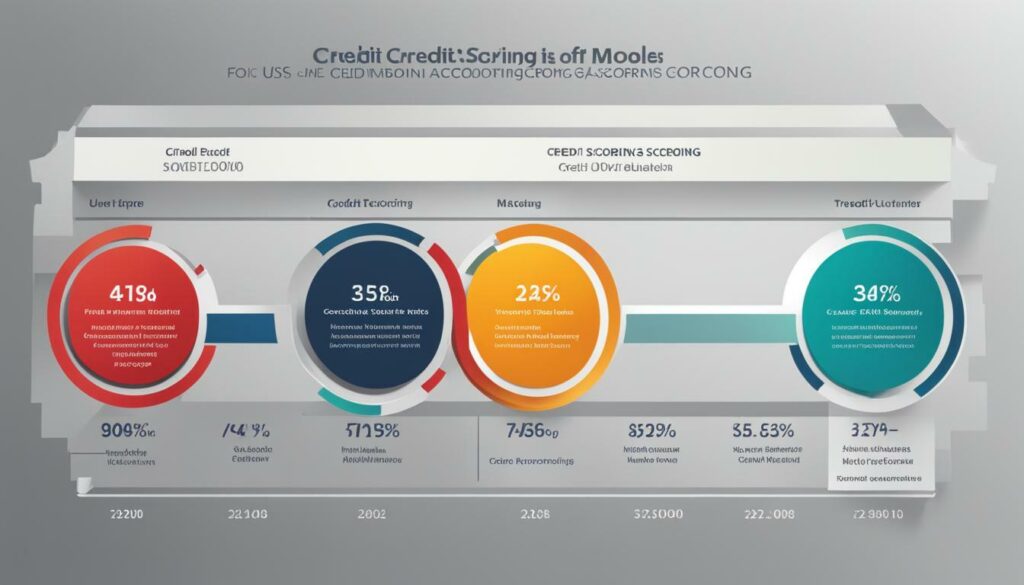Understanding the Cultural Significance of Credit Scores in the US

Credit scores have become a fundamental aspect of financial life in the United States, influencing both individual financial opportunities and societal status. In today’s society, credit scores hold cultural significance as they play a crucial role in determining an individual’s access to credit, housing, employment, and other financial opportunities. They serve as a measure of financial responsibility and are often used as a gauge of one’s trustworthiness and reliability.
The importance of credit scores in American society cannot be overstated. A good credit score opens doors to favorable interest rates, higher credit limits, and better loan terms. It can impact an individual’s ability to secure a mortgage, finance a car, or obtain credit for education expenses. On the other hand, a poor credit score can limit opportunities and result in higher interest rates, lower credit limits, and restricted access to financial resources.
Key Takeaways:
- Credit scores have a significant impact on financial opportunities and societal status in the US.
- They are used by lenders, insurers, and other companies to assess eligibility and pricing.
- Good credit scores open doors to better financial opportunities, while poor scores can restrict access to credit.
- Credit scores are a measure of financial responsibility and trustworthiness.
- Understanding credit scores is crucial for individuals to navigate the financial landscape effectively.
As we delve into the cultural significance of credit scores in the United States, it is essential to examine their history, role in financial decision-making, concerns surrounding credit reporting, privacy implications, and practical strategies for leveraging credit opportunities. By gaining a comprehensive understanding of credit scores, individuals can make informed financial decisions and strive for financial well-being in today’s society.
The History of Credit Reporting and Scoring
Credit reporting and scoring has a long history, evolving from commercial credit reporting in the 19th century to the development of consumer credit reporting and the introduction of credit scoring models. This fascinating journey began with the need for merchants to assess the creditworthiness of their customers in the early days of trade. As commerce expanded, it became evident that a centralized system was necessary to collect and share information about creditworthiness.
In the mid-19th century, the concept of commercial credit reporting emerged, with businesses exchanging credit information about individuals and companies. These reports, often compiled by local merchants, included details about payment history, debts, and character references. Credit reporting agencies, such as Dun & Bradstreet, played a crucial role in standardizing and organizing this information, transforming it into a valuable resource for lenders and businesses.
🚨 TUIC Errors + Low Credit Score?
CreditScoreIQ helps you build credit faster by reporting utility bills to all 3 bureaus—while you dispute errors.
Start Building Credit Today →“A credit report is like a financial report card. It provides a snapshot of an individual’s financial history and helps lenders make informed decisions.”
As the demand for consumer credit increased in the 20th century, the focus shifted towards individual creditworthiness. The advent of consumer credit reporting allowed lenders to access information specific to consumers, paving the way for a fairer assessment of credit risk. However, the process of manually reviewing credit reports was time-consuming and limited in scale.
Enter credit scoring models, a game-changer in the industry. The development of scoring algorithms, most notably the FICO score, revolutionized the credit reporting landscape by providing a standardized and objective measure of creditworthiness. Credit scores consider various factors, including payment history, credit utilization, length of credit history, and types of credit used. They not only simplified the decision-making process for lenders but also made credit more accessible to a wider range of borrowers.

| Year | Scoring Model | Description |
|---|---|---|
| 1956 | FICO Score | The Fair Isaac Corporation introduced the FICO score, which quickly gained widespread adoption in the lending industry. |
| 1989 | VantageScore | A collaborative effort by the three major credit bureaus – Equifax, Experian, and TransUnion – resulted in the development of the VantageScore model. |
| 2006 | UltraFICO Score | Building on the traditional FICO score, the UltraFICO score incorporates banking data to provide a more comprehensive assessment of creditworthiness. |
The Role of Credit Scores in Financial Decision-Making
Credit scores play a crucial role in financial decision-making, shaping cultural values and impacting an individual’s social status. In the United States, a person’s credit score has become a significant factor in determining their eligibility for loans, mortgages, credit cards, and even employment opportunities. It is a measure of an individual’s creditworthiness and financial responsibility, and it has far-reaching implications in our society.
Financial institutions, such as banks and lenders, rely heavily on credit scores when assessing the risk of lending money to individuals. A good credit score can open doors to lower interest rates and higher credit limits, while a poor credit score can result in limited financial options and higher borrowing costs. Consequently, credit scores have become embedded in our society’s financial fabric, influencing our access to essential resources and economic opportunities.
Moreover, credit scores have the power to shape cultural values and perceptions. In a society where creditworthiness is closely linked to success and stability, individuals with high credit scores are often admired and respected. They are seen as responsible and trustworthy, while those with lower credit scores may face social stigma or limited opportunities. This cultural significance reinforces the importance of maintaining a good credit score and managing credit responsibly.
It is essential to recognize the influence of credit scores on our financial lives and cultural norms. By understanding how credit scores impact our society, we can make informed financial decisions, work towards improving our creditworthiness, and advocate for fair and accurate credit reporting practices.

Overall, credit scores have become more than just a number. They have become a symbol of financial health, trustworthiness, and societal standing. To navigate the financial landscape effectively, it is crucial to be proactive in managing and improving our credit scores while advocating for fairness, accuracy, and transparency in the credit reporting system.
Concerns and Criticisms Surrounding Credit Reporting
Despite their widespread use, credit reports are not without concerns, including accuracy and fairness issues that need to be addressed. The reliability of credit reports is essential, as they play a significant role in determining individuals’ financial opportunities. However, errors and discrepancies can still be found in credit reports, which can have serious consequences for consumers.
One of the main concerns surrounding credit reporting is the accuracy of the information contained in credit reports. Inaccurate reporting can result in a lower credit score, which can affect an individual’s ability to secure loans or obtain favorable interest rates. It is essential for credit reporting agencies to ensure the accuracy of the information they collect and report to lenders.
Fairness is another area of concern when it comes to credit reporting. Some critics argue that the current credit reporting system may not adequately consider the individual circumstances of consumers. This can lead to disparities in credit scores, as factors such as medical debt or job loss may negatively impact an individual’s creditworthiness without fully reflecting their financial responsibility.
The Importance of Addressing Concerns
Addressing concerns about credit reporting is crucial for maintaining trust in the financial system and ensuring equal opportunities for all consumers. Credit reporting agencies should strive to improve the accuracy of credit reports and provide consumers with the ability to easily dispute and correct any errors. Additionally, there should be efforts to review and refine the criteria used in credit scoring models to ensure fairness and consider individual circumstances.
By addressing these concerns, the credit reporting system can become more reliable and transparent, benefiting both consumers and lenders. A fair and accurate credit reporting system is essential for individuals to access credit and financial opportunities, as well as for lenders to make informed decisions based on reliable information.
| Concerns | Impact |
|---|---|
| Inaccurate credit reports | Can result in lower credit scores and limited financial opportunities |
| Unfair credit scoring | May not adequately consider individual circumstances, leading to disparities in creditworthiness |

In conclusion, while credit reporting plays a crucial role in the financial landscape, concerns about accuracy and fairness persist. It is essential for credit reporting agencies and policymakers to address these concerns to ensure a reliable and fair credit reporting system. By doing so, individuals can have greater confidence in their credit reports, and lenders can make more informed decisions based on accurate information.
Privacy and Credit Information Sharing
The sharing of credit information with affiliates raises important privacy concerns and considerations. When you apply for a credit card or loan, your personal and financial information is often shared with the affiliated companies of the credit reporting agency. This allows those companies to assess your creditworthiness and offer you tailored products and services. While this sharing of information can provide benefits, such as personalized offers and discounts, it also raises questions about the protection of your privacy.
One of the main concerns related to the sharing of credit information with affiliates is the potential for data breaches and unauthorized access to your personal information. In today’s digital age, the risk of cyberattacks and identity theft is ever-present, and the more entities that have access to your data, the higher the risk becomes. It is therefore crucial for companies to implement robust security measures to safeguard your information and prevent unauthorized access.
Another consideration is the transparency and control you have over your own credit information. It is important for individuals to have a clear understanding of how their information is being used and shared, as well as the ability to opt out if desired. Companies should provide clear and concise explanations of their data sharing practices and give individuals the option to limit or restrict the sharing of their credit information.
In conclusion, while the sharing of credit information with affiliates can provide benefits for consumers, it also raises important privacy concerns. Companies must prioritize the protection of personal data and ensure transparency and control for individuals. By understanding the potential risks and taking steps to protect your privacy, you can navigate the financial landscape with confidence and peace of mind.

Understanding how to navigate the financial landscape with credit scores is crucial for individuals seeking to make the most of their financial opportunities. Your credit score plays a significant role in determining your eligibility for various financial products, such as loans, credit cards, and mortgages. It also affects the interest rates you receive and the overall cost of credit. By understanding how credit scores work and taking proactive steps to improve and maintain your score, you can position yourself for financial success.
First and foremost, it’s essential to regularly monitor your credit score. There are several credit reporting agencies that provide free access to your credit reports, which contain information used to calculate your score. Reviewing your reports for accuracy and identifying any potential errors or discrepancies is vital. Incorrect information can negatively impact your score, so it’s crucial to dispute any inaccuracies promptly.
Once you have a clear understanding of your credit standing, you can take steps to improve your credit score. One effective strategy is to make all your bill payments on time. Late payments can have a significant adverse impact on your credit score. Creating a budget and prioritizing your commitments can help ensure timely payments.
| Key Tips for Navigating the Financial Landscape with Credit Scores |
|---|
| 1. Reduce credit card balances: Keep your credit card balances low to maintain a healthy credit utilization ratio. |
| 2. Diversify your credit: Having a mix of credit accounts, such as credit cards, loans, and a mortgage, can positively impact your score. |
| 3. Avoid opening multiple new accounts: Opening several new accounts in a short period can be seen as a risk and lower your score. |
“Your credit score is a reflection of your financial responsibility and history. By taking steps to improve and manage your score, you can open doors to better financial opportunities and improve your overall financial well-being.” – Financial Expert
Conclusion
Understanding how credit scores impact your financial opportunities is key to navigating the financial landscape successfully. Regularly monitoring your credit score, addressing any inaccuracies, and implementing strategies to improve your score can have a significant impact on your financial future. Remember to make timely payments, reduce credit card balances, and maintain a diverse credit portfolio. By taking control of your credit score, you can unlock better financial opportunities and achieve your financial goals.

The Cultural Implications of Credit Scores
The cultural implications of credit scores extend beyond individual financial decisions, reflecting and influencing broader cultural values. In the United States, credit scores have become deeply ingrained in society, shaping perceptions of financial responsibility, trustworthiness, and success. A high credit score is often associated with positive attributes, such as responsibility, reliability, and good financial management, while a low credit score can lead to negative judgments and limited opportunities.
The significance of credit scores in American culture is evident in various aspects of life. From renting an apartment to securing a job, credit scores can impact an individual’s chances of success. Landlords often rely on credit scores to assess a potential tenant’s reliability and ability to pay rent on time. Employers may use credit scores as a measure of an individual’s overall responsibility and financial stability. This reliance on credit scores in non-financial contexts highlights the cultural weight they carry.
Moreover, credit scores can reflect societal norms and values. In a society that places great importance on material possessions and financial achievements, a high credit score can symbolize success and social status. It can open doors to better financial opportunities, such as lower interest rates on loans, higher credit limits, and access to exclusive perks. Conversely, a low credit score can reinforce negative stereotypes and perpetuate systemic inequalities, limiting economic mobility for individuals in already disadvantaged positions.
Understanding the cultural implications of credit scores is crucial for individuals navigating the financial landscape in the United States. By recognizing the influence of credit scores on societal perceptions and opportunities, individuals can strive to build and maintain good credit. This includes practicing responsible financial habits, such as paying bills on time, managing debt wisely, and regularly monitoring credit reports for errors. By taking proactive steps to improve their credit scores, individuals can increase their financial independence and actively challenge the cultural norms associated with creditworthiness.

Conclusion
Credit scores have undeniably become a significant factor in American society, shaping financial opportunities, societal status, and cultural values. Understanding the cultural significance of credit scores is crucial for individuals to navigate the financial landscape in the US.
Throughout history, credit reporting and scoring have evolved from commercial credit reporting in the 19th century to the development of consumer credit reporting. The introduction of credit scoring models, such as FICO scores, revolutionized the industry by making credit scoring more accessible to lenders.
Today, credit scores play a pivotal role in financial decision-making. They not only influence cultural norms and values but also impact an individual’s social status. Lenders, insurers, and other companies rely on credit scores to assess eligibility and pricing.
However, concerns about credit reporting persist. Inaccuracies and discrepancies in credit reports highlight the need for improved accuracy and fairness in the system. Additionally, the sharing of credit information with affiliates raises privacy concerns that must be addressed to protect consumers.
Overall, credit scores have become deeply ingrained in American society, shaping various aspects of individuals’ financial lives. Understanding the cultural implications and impact of credit scores is essential for individuals to navigate the complex financial landscape effectively.
FAQ
Q: What is the cultural significance of credit scores in the US?
A: Credit scores have become a normal part of Americans’ financial lives, impacting their access to financial opportunities and societal status.
Q: How did credit reporting and scoring evolve in the US?
A: Credit reporting began as commercial credit reporting in the 19th century and eventually transformed into consumer credit reporting. The development of credit scoring models, such as FICO scores, revolutionized the industry.
Q: How are credit scores used in financial decision-making?
A: Credit scores are used by lenders, insurers, and other companies to assess an individual’s eligibility and pricing. They also influence cultural norms and values, as well as an individual’s social status.
Q: What are the concerns surrounding credit reporting?
A: There are concerns about the accuracy and fairness of credit reporting, as errors and discrepancies can still be found in credit reports. Improving accuracy and fairness in the credit reporting system is crucial.
Q: How does credit information sharing impact privacy?
A: The sharing of credit information with affiliates raises concerns about privacy. The potential implications and concerns surrounding the sharing of personal credit information need to be addressed.
Q: How can individuals navigate the financial landscape with credit scores?
A: Individuals can navigate the financial landscape by improving their credit scores, managing credit effectively, and leveraging credit opportunities. Practical tips and strategies are available to help individuals make the most of their credit scores.
Q: What are the cultural implications of credit scores?
A: Credit scores align with cultural values and norms and have broader societal impacts. Understanding the cultural implications of credit scores is essential to grasp their full significance in the United States.
Ready to Improve Your Credit?
Disputing TUIC errors is step one. Step two? Boost your score by reporting utility payments with CreditScoreIQ.
Get Started Now (Only $1 Trial) →3-bureau reporting • $1M identity insurance • Dark web monitoring





